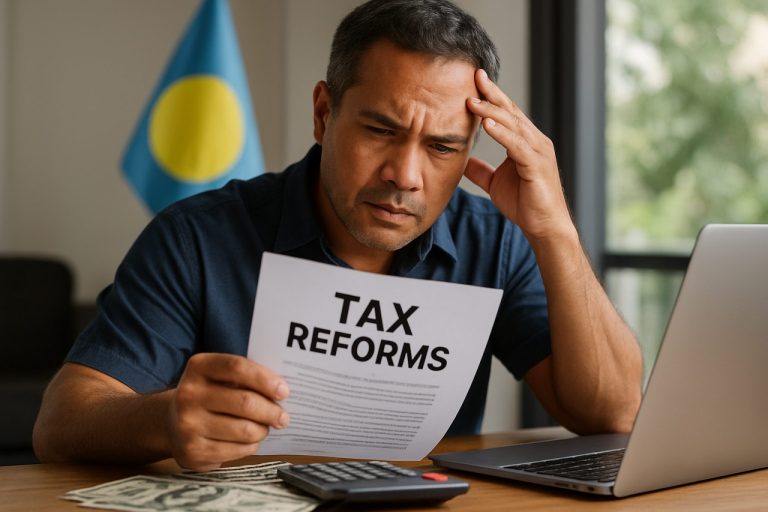
Table of Contents
- Executive Summary: Key Shifts in Congo’s Business Law Landscape
- Legal Framework: Overview of Current Business Regulations (2025)
- Company Formation and Registration: New Rules Explained
- Taxation and Fiscal Policies: Critical Updates for Businesses
- Foreign Investment Laws: Opportunities and Pitfalls Ahead
- Compliance and Anti-Corruption Measures: Staying on the Right Side
- Intellectual Property Protection: Recent Reforms and Enforcement
- Employment Law: Employer Obligations and Labor Market Trends
- Key Statistics: Recent Data from Official Congolese Authorities
- Future Outlook: Predicted Legal Trends and Regulatory Changes (2025–2030)
- Sources & References
Executive Summary: Key Shifts in Congo's Business Law Landscape
The business law environment in the Republic of Congo is undergoing significant evolution as the country strives to modernize its legal framework, improve compliance, and foster a more attractive climate for domestic and foreign investment. In 2025, key legislative and regulatory reforms are being implemented in alignment with regional and international standards, particularly through Congo’s continued engagement with the Organization for the Harmonization of Business Law in Africa (OHADA). These reforms aim to enhance legal certainty, streamline company formation, and strengthen insolvency and dispute resolution mechanisms.
Recent years have seen the introduction of the revised OHADA Uniform Acts directly impacting Congolese business law. The Uniform Act on Commercial Companies and Economic Interest Groups, which was updated in 2014 and subsequently adopted in Congo, has simplified registration procedures and increased transparency requirements for business entities. Furthermore, the Uniform Act on Insolvency Proceedings, effective since 2015, is being more rigorously enforced to ensure better protection for creditors and stakeholders (OHADA).
Locally, the Ministry of Justice and Human Rights (Ministère de la Justice et des Droits Humains) has prioritized the digitalization of corporate registries and the reduction of bureaucratic bottlenecks in business licensing. In 2025, the government is expanding online services for company registration and compliance filings. This modernization is expected to reduce the average time to start a business, which was previously over 50 days, by at least 30% by 2026.
Compliance remains a central concern, particularly in relation to anti-money laundering and anti-corruption frameworks. The government is intensifying enforcement of Law No. 37-2019 on the Prevention and Repression of Corruption, with increased reporting obligations for companies and stricter penalties for non-compliance (Ministère de la Justice et des Droits Humains). In addition, collaboration with the Central Bank of Congo (Banque Centrale du Congo) is strengthening oversight of financial transactions and enhancing due diligence requirements in the banking sector.
Looking ahead, the outlook for business law in Congo is cautiously optimistic. Ongoing reforms, regional legal harmonization, and the adoption of digital solutions are expected to gradually improve the ease of doing business and legal predictability. However, persistent challenges remain, including capacity constraints in the judiciary and the need for further training of legal professionals. As Congo continues to align with OHADA principles and bolster compliance mechanisms, the business law landscape is set to become more robust and conducive to sustainable investment over the next several years.
Legal Framework: Overview of Current Business Regulations (2025)
The legal framework governing business operations in the Republic of the Congo (Congo-Brazzaville) is shaped by a combination of national laws, regional agreements, and international commitments. As of 2025, the foundational legal architecture for business is anchored in the Congolese Commercial Code and various sector-specific statutes. The country is a member of the Organization for the Harmonization of Business Law in Africa (OHADA), which enforces uniform business laws across 17 African states, including Congo. OHADA’s Uniform Acts cover company law, commercial companies, secured transactions, and insolvency, and are directly applicable in Congo’s courts and business administration (OHADA).
The Ministry of Justice oversees the implementation and reform of commercial regulations, while the Ministry of Economy, Industry and Public Portfolio is responsible for company registrations, investment promotion, and compliance monitoring (Ministère de l’Économie, des Finances et du Portefeuille Public). In 2025, recent legislative updates include further streamlining of company registration through the Guichet Unique de Création d’Entreprise, allowing for incorporation within 72 hours under normal circumstances. The regulatory trend is toward greater transparency and digitalization, in line with regional integration efforts and recommendations from international partners (Agence pour la Promotion des Investissements).
Anti-corruption measures have also tightened, with enforcement of the 2019 anti-corruption law and the establishment of the High Authority for the Fight Against Corruption, which monitors compliance and investigates business-related infractions (Haute Autorité de Lutte contre la Corruption). Companies in sectors such as mining, oil, and forestry face enhanced due diligence and reporting requirements, reflecting both national priorities and Congo’s commitments under the Extractive Industries Transparency Initiative (EITI) (EITI Congo).
Key statistics highlight an increase in registered businesses, with the national registry reporting over 54,000 formal enterprises as of early 2025—a 12% rise since 2023. However, informal sector activity remains significant, and compliance with labor, tax, and environmental laws is an ongoing challenge. The government continues to collaborate with OHADA on further reforms, particularly in insolvency and secured transactions, to improve the business climate and attract foreign investment.
Looking ahead, the outlook for business law in Congo is one of cautious modernization. Reforms are expected to accelerate, particularly in digitalization and dispute resolution systems, while authorities focus on enforcing compliance, reducing bureaucracy, and harmonizing domestic regulations with OHADA standards. These developments are anticipated to foster a more predictable and attractive environment for both domestic and international businesses.
Company Formation and Registration: New Rules Explained
The landscape of company formation and registration in the Republic of the Congo has undergone significant changes in recent years, with reforms aimed at simplifying procedures, improving transparency, and aligning with international best practices. As of 2025, these reforms are particularly relevant for both domestic and foreign investors seeking to establish businesses in the country.
A notable development is the continued digitalization of the company registration process through the Centre de Formalités des Entreprises (CFE), a one-stop shop that centralizes all administrative steps required for business creation. The CFE enables applicants to submit documents, obtain tax identification numbers, and register with social security electronically, significantly reducing processing times. According to the Centre de Formalités des Entreprises, the average time to register a company has been reduced to less than 72 hours, compared to several weeks prior to 2020.
The 2021 revision of the Organization for the Harmonization of Business Law in Africa (OHADA) Uniform Act on Commercial Companies and Economic Interest Groups—adopted and enforced by Congo—remains the principal legal framework governing company formation. The Uniform Act streamlines the types of business entities available, such as Société à Responsabilité Limitée (SARL) and Société Anonyme (SA), and clarifies requirements for minimum capital, management structure, and liability. The OHADA reforms continue to be enforced and updated, ensuring that the Congolese legal environment remains harmonized with those of 16 other African member states (OHADA).
- Minimum share capital for an SARL remains 100,000 XAF (≈$165 USD), with at least one shareholder and one manager.
- Foreign investors face no additional capital requirements and can own up to 100% of the shares.
- Mandatory registration with the Registre de Commerce et du Crédit Mobilier (RCCM) is now fully integrated into the CFE digital platform (Centre de Formalités des Entreprises).
Compliance remains critical. Failure to properly register or update company information, or to file annual returns, may result in administrative sanctions or company dissolution. The government has increased spot checks and compliance campaigns, particularly targeting dormant or non-compliant entities.
Looking ahead, the Congolese government has signaled its intent to further streamline licensing and post-registration processes in 2025 and beyond, with a focus on improving the business climate and attracting foreign direct investment. The ongoing modernization of the CFE platform and continued alignment with OHADA norms are expected to improve Congo’s standing in regional business environment rankings (Government of the Republic of the Congo).
Taxation and Fiscal Policies: Critical Updates for Businesses
Business law in the Republic of Congo has experienced significant evolution in its taxation and fiscal policies, shaping the operational landscape for both domestic and international enterprises. As of 2025, the Congolese government is intensifying efforts to modernize its tax framework, streamline compliance, and enhance state revenue collection, in alignment with commitments to economic diversification and improved governance.
The General Tax Code, administered by the Direction Générale des Impôts et des Domaines, remains the principal legislation guiding corporate taxation. The standard corporate income tax rate is set at 30%, with a reduced rate of 25% for small and medium-sized enterprises (SMEs) that meet specific criteria. The Value Added Tax (VAT) stands at 18%, applicable to most goods and services, with exemptions for certain essential products and sectors, such as basic foodstuffs and public health services. The government has steadily expanded the scope of VAT and initiated digitalization measures to improve collection efficiency and minimize evasion.
Recent reforms, including those implemented in late 2023 and operational through 2025, have introduced mandatory electronic filing and payment systems for most tax categories. The Direction Générale des Impôts et des Domaines has emphasized digital compliance, requiring businesses to register online and submit periodic returns electronically. This shift aims to reduce bureaucratic delays and increase transparency in tax administration.
Key compliance obligations for businesses include timely registration for all applicable taxes, maintenance of accurate accounting records in accordance with the OHADA Uniform Act, and adherence to regular reporting schedules. The Congolese authorities have increased audit activities, focusing on transfer pricing, VAT compliance, and under-declaration of taxable income. Penalties for non-compliance can reach up to 100% of the tax due, in addition to interest charges.
Statistically, tax revenues accounted for approximately 10.4% of GDP in 2023, with projections for modest growth as compliance measures take effect and the tax base is broadened. The government aims to increase this ratio in line with regional benchmarks set by the Central African Economic and Monetary Community (CEMAC).
Looking ahead, the outlook for business taxation in Congo includes further digitalization, potential adjustments to tax rates in response to fiscal pressures, and enhanced cross-border cooperation on tax matters. Businesses are advised to closely monitor official communications from the Direction Générale des Impôts et des Domaines for updates and to ensure robust compliance practices to mitigate legal and financial risks.
Foreign Investment Laws: Opportunities and Pitfalls Ahead
The Democratic Republic of the Congo (DRC) continues to refine its business law framework to attract and regulate foreign investment as it seeks sustainable economic growth in 2025 and beyond. Key legislation governing foreign investment includes the Investment Code (Law No. 004/2002) and related decrees, which establish the basic regime for foreign investors, including guarantees of equal treatment, protection against nationalization, and the right to transfer profits and capital abroad, subject to compliance with national regulations. Amendments to investment-related laws are under discussion, particularly to streamline procedures and improve legal certainty, a priority outlined in recent government reform plans (Ministère de la Justice et Garde des Sceaux).
In practical terms, foreign investment remains concentrated in sectors such as mining, energy, and telecommunications. In 2023, the DRC attracted approximately $1.8 billion in foreign direct investment inflows, a figure poised to increase if ongoing legal reforms yield greater transparency and efficiency (United Nations Conference on Trade and Development). The establishment of the National Agency for Investment Promotion (ANAPI) has improved the clarity and accessibility of business registration and licensing, though investors still report administrative delays and inconsistent application of regulations (Agence Nationale pour la Promotion des Investissements).
Compliance with local content requirements and environmental standards is increasingly enforced, particularly in the mining and energy industries. The 2018 Mining Code revision introduced stricter rules on subcontracting, mandating that certain services be reserved for Congolese-owned entities, and increased state participation and royalty rates. The government has announced that further enforcement actions and possible new sectoral guidelines are expected in 2025 to ensure that foreign investors contribute to national development and adhere to environmental obligations (Ministère des Mines).
Despite these opportunities, pitfalls remain. Issues such as legal uncertainty, complex tax regimes, corruption, and the risk of expropriation continue to challenge foreign investors. The DRC is a member of the Organization for the Harmonization of Business Law in Africa (OHADA), which offers a harmonized legal environment for commercial activities, but practical application remains uneven (OHADA). Initiatives in 2025 aim to enhance judicial efficiency and digitalize business processes, with a goal to further reduce barriers for foreign investors.
Looking ahead, the outlook for foreign investment in the DRC is cautiously optimistic. Continued government commitment to legal reform, coupled with increased transparency and enforcement of existing laws, could unlock new opportunities. However, investors must remain vigilant regarding compliance and evolving regulatory requirements as reforms progress in the coming years.
Compliance and Anti-Corruption Measures: Staying on the Right Side
In 2025, compliance and anti-corruption measures remain central pillars of business law in the Republic of Congo (Congo-Brazzaville). The country is a signatory to several international conventions, including the United Nations Convention against Corruption (UNCAC), which mandates participating states to implement preventive measures, criminalize corrupt practices, and foster international cooperation in fighting corruption. Domestically, Congo’s anti-corruption regime is structured around the Penal Code and the Law No. 5-2009 on the Prevention and Fight Against Corruption, which set forth criminal liabilities for bribery, embezzlement, and related offenses for both individuals and corporate entities (Assemblée Nationale).
Recent years have seen the Congolese government intensify enforcement, particularly in the extractive industries, which account for over 65% of export revenues. The Ministère des Finances et du Budget and the Ministère de la Justice have increased scrutiny of public procurement, licensing, and tax compliance, with a focus on reducing illicit payments and conflicts of interest. In 2024, the national anti-corruption court, created under the 2022 anti-corruption strategy, adjudicated over 40 cases involving public officials and business executives, resulting in several high-profile convictions (Ministère de la Justice).
For businesses operating in Congo in 2025, compliance obligations include thorough due diligence on local partners, strict internal controls, and mandatory reporting of suspicious transactions. Companies must also comply with requirements for transparency in beneficial ownership and adhere to anti-money laundering protocols set by the Banque des États de l'Afrique Centrale (BEAC), the regional central bank. In 2023, BEAC updated its guidelines for financial institutions, mandating enhanced customer due diligence and regular employee training on anti-corruption risks.
Despite these advancements, challenges persist. Transparency International’s 2023 Corruption Perceptions Index ranked Congo 166 out of 180, indicating ongoing risks for investors. However, the outlook for 2025 and beyond is cautiously optimistic. The government has pledged continued reforms, including digitalization of administrative processes and further strengthening of judicial independence, aiming to improve the country’s investment climate and compliance standards. Businesses are advised to monitor regulatory updates and maintain robust compliance programs to mitigate legal and reputational risks as enforcement intensifies.
Intellectual Property Protection: Recent Reforms and Enforcement
Intellectual property (IP) protection has undergone notable reforms in the Republic of the Congo in recent years, reflecting the government’s commitment to align business law with international standards and foster an environment conducive to innovation and foreign investment. Congo is a member of the Organisation Africaine de la Propriété Intellectuelle (OAPI), which harmonizes IP laws across its member states. Recent amendments to the Bangui Agreement—the regional IP framework—came into force in 2020, and their phased implementation continues to influence Congolese business law compliance and enforcement into 2025.
Key changes include clarified procedures for trademark, patent, and industrial design registration, streamlined dispute resolution mechanisms, and enhanced recognition of digital IP rights. Congo’s National Industrial Property Service, operating under the Ministry of Industry, has updated its administrative procedures and increased public awareness campaigns to inform businesses of their rights and obligations under the revised OAPI regime (Organisation Africaine de la Propriété Intellectuelle).
Enforcement remains a core challenge. Data from OAPI’s annual reports indicate a steady increase in the number of trademark and patent applications originating from Congo, rising by approximately 8% year-on-year from 2022 through 2024. This uptick reflects growing business interest in IP protection, but also highlights the need for robust enforcement mechanisms to counteract persistent issues such as counterfeiting and piracy, particularly in the consumer goods and pharmaceutical sectors.
To address enforcement gaps, Congolese authorities have strengthened cooperation with customs and law enforcement agencies, resulting in more frequent border seizures of counterfeit goods. The National Committee for the Fight Against Counterfeiting, established in 2023, has started to coordinate multi-agency operations and issue guidance on prosecution strategies (Government of the Republic of Congo). However, the number of successful IP infringement prosecutions remains limited, partly due to resource constraints and ongoing capacity-building needs within the judiciary.
Looking ahead, the outlook for IP protection in Congo is cautiously optimistic. The government’s ongoing legal harmonization with OAPI standards is expected to further simplify business compliance. Additionally, digitalization initiatives—such as the planned introduction of online IP application portals—aim to reduce administrative bottlenecks by 2026. Foreign investors are advised to monitor these reforms closely, register their IP assets promptly, and engage with local counsel to ensure compliance and effective enforcement under evolving Congolese business law.
Employment Law: Employer Obligations and Labor Market Trends
Employment law in the Republic of Congo (Congo-Brazzaville) is governed principally by the Labor Code (Loi n° 45-75 du 15 mars 1975) and its subsequent amendments, which set out the rights and responsibilities of employers and employees. As of 2025, the government continues to implement reforms to harmonize labor standards with regional and international norms, responding to both domestic economic needs and commitments under the African Union and International Labour Organization frameworks (Ministère du Travail et de la Sécurité Sociale).
Key employer obligations include formalizing contracts of employment, registering employees with the national social security system, adhering to statutory minimum wage requirements, and ensuring workplace safety. The minimum wage was most recently revised in 2021, with periodic review anticipated in line with cost-of-living adjustments (Ministère du Travail et de la Sécurité Sociale). Employers must provide written contracts for fixed-term and permanent positions, and are required to submit declarations of employment to the labor inspectorate.
Social security contributions are mandatory for both employers and employees, covering pensions, occupational injury, and family allowances. The employer’s contribution rate varies by sector but generally hovers around 8% of gross salary, while the employee’s share is approximately 4% (Caisse Nationale de Sécurité Sociale). Employers are also responsible for deducting and remitting income taxes from employee wages, with compliance monitored by the national tax authority.
Recent years have seen an increased focus on compliance with workplace safety and anti-discrimination regulations. The Labor Inspectorate has expanded its audit activities, targeting industries with higher rates of informal employment, such as construction, agriculture, and retail. Non-compliance can result in administrative fines or, in severe cases, business license suspension. The government has also introduced digital platforms to facilitate employer reporting and streamline interactions with public bodies (Ministère du Travail et de la Sécurité Sociale).
Labor market trends indicate moderate growth in formal employment, buoyed by investments in infrastructure and extractive industries. However, the informal sector remains dominant, employing an estimated 80% of the workforce. The government’s National Employment Policy (2021–2025) aims to reduce informality through incentives for business registration and improved vocational training programs (Ministère du Travail et de la Sécurité Sociale). Looking ahead, anticipated amendments to the Labor Code are expected to further clarify employer obligations, enhance worker protections, and align local laws with standards set by the Economic and Monetary Community of Central Africa (CEMAC).
Key Statistics: Recent Data from Official Congolese Authorities
Business law in the Republic of the Congo is shaped by ongoing regulatory reforms and economic priorities set forth by national authorities. In 2025, the government continues its efforts to modernize the legal framework to attract foreign investment and foster domestic entrepreneurship, leveraging both national legislation and the supranational OHADA (Organisation for the Harmonization of Business Law in Africa) system. The Ministry of Justice and Human Rights, in coordination with the Ministère de la Justice et des Droits Humains, remains central in implementing and monitoring compliance with business law standards.
- As of early 2025, official data from the Institut National de la Statistique (INS) indicates that over 4,200 new business entities were registered in 2024, reflecting a 7% year-on-year increase. This uptick follows national reforms aimed at streamlining company registration and reducing procedural delays.
- The Direction Générale des Impôts et des Contributions (DGI) reported that tax compliance rates among registered businesses improved to 68% in 2024, up from 63% in 2023, following enhanced enforcement mechanisms and digitalization of tax declarations.
- The Guichet Unique de Création d’Entreprise (One-Stop Business Creation Center) announced that the average time to register a new business was reduced to 3.5 days in 2024, compared to the previous average of 7 days in 2022. This streamlining aligns with Congo’s commitments under the OHADA Uniform Act on Commercial Companies.
- According to the Organisation pour l'Harmonisation en Afrique du Droit des Affaires (OHADA), Congo fully implemented the revised Uniform Acts on commercial law, insolvency, and arbitration in 2024, ensuring greater legal predictability for both domestic and foreign investors.
- The Conseil National du Patronat Congolais (CNPC) noted in its 2024 annual report that legal disputes related to commercial contracts decreased by 12% year-on-year, attributed to the increased use of mediation and arbitration as promoted by recent legislative updates.
Looking ahead, Congolese authorities aim to further enhance business law compliance and reduce informality, with a target of registering at least 5,000 new businesses annually by 2027. The focus remains on digital transformation, legal harmonization with OHADA, and capacity building for judicial and administrative staff to improve enforcement and dispute resolution.
Future Outlook: Predicted Legal Trends and Regulatory Changes (2025–2030)
The future landscape of business law in the Republic of Congo (Congo-Brazzaville) is poised for transformation, driven by regional integration, domestic reforms, and international investment pressures. As a member of the Organisation for the Harmonization of Business Law in Africa (OHADA), Congo continues to align its commercial legal framework with regional standards, notably through the adoption of unified acts on matters such as company formation, securities, and insolvency. In the period 2025–2030, several key trends and regulatory changes are anticipated.
- OHADA Reforms and Digitalization: The OHADA Council of Ministers has signaled ongoing modernization of business law, including the digitalization of commercial registries and the streamlining of corporate procedures. Congo is expected to implement updates to OHADA’s Uniform Acts, particularly those related to commercial companies and insolvency, improving transparency and ease of doing business. These reforms aim to attract foreign investment and foster entrepreneurship, aligning with regional priorities (Organisation for the Harmonization of Business Law in Africa).
- Anti-Corruption and Compliance Measures: Heightened scrutiny of corporate governance and anti-corruption compliance is expected, in part due to international pressure and Congo’s commitments under the Extractive Industries Transparency Initiative. Legal reforms are projected in procurement, reporting standards, and anti-money laundering frameworks, with increased enforcement by bodies such as the Conseil Constitutionnel du Congo and relevant ministries, aiming to boost investor confidence and align with global best practices.
- Investment Law and Public-Private Partnerships: The Congolese government has prioritized the revision of its investment code and the operationalization of its framework for public-private partnerships (PPPs). These changes are intended to offer greater legal security to investors and promote infrastructure development in sectors including energy, transport, and digital services (Ministère du Commerce et des Approvisionnements).
- Corporate Social Responsibility (CSR) and Environmental Law: There is increasing emphasis on environmental compliance and CSR obligations, particularly for companies involved in natural resources and extractive sectors. Anticipated amendments to environmental regulations are likely to establish stricter reporting and remediation requirements, in line with international agreements and Congo’s national development plans (Ministère de l’Environnement, du Développement Durable et du Bassin du Congo).
Overall, the period through 2030 is expected to see incremental but meaningful advancements in business law, with a focus on harmonization, transparency, and compliance. These changes aim to position Congo as a more attractive and reliable destination for both domestic and foreign investment, in line with regional and international legal standards.
Sources & References
- Ministère de la Justice et des Droits Humains
- EITI Congo
- Government of the Republic of the Congo
- Direction Générale des Impôts et des Domaines
- Central African Economic and Monetary Community (CEMAC)
- Ministère de la Justice et Garde des Sceaux
- Agence Nationale pour la Promotion des Investissements
- Ministère des Mines
- Assemblée Nationale
- Banque des États de l'Afrique Centrale (BEAC)
- Institut National de la Statistique (INS)



